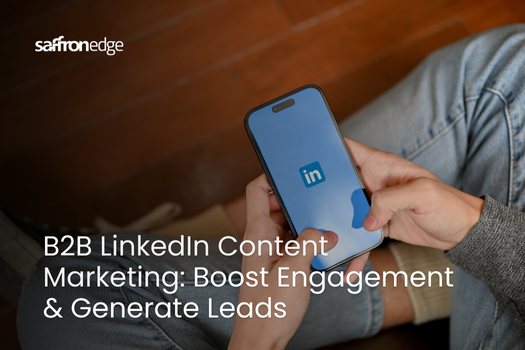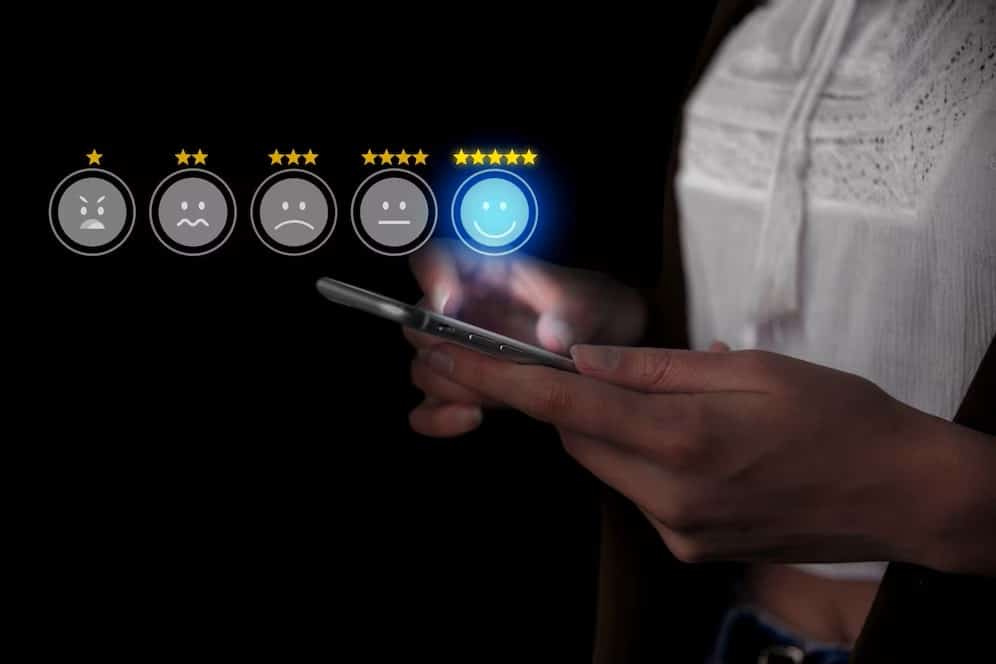Digital marketing is the form of content marketing, marketing automation, paid advertising, and mobile optimization, which will continue to grow in the coming years.
As companies look for ways to adapt to these changes, it is essential to understand how proactive content marketing and planning can help meet business goals.
This blog will share 5 B2B content marketing trends every business should follow in 2025.
What is B2B content marketing ?
B2B content marketing is a strategic approach focused on creating valuable, relevant, and consistent content to attract and engage business decision-makers and key stakeholders. Instead of direct sales messaging, it provides industry insights, solutions, and expertise to build trust and establish authority over time.
B2B content marketing takes various forms, including blog posts, white papers, case studies, webinars, videos, and LinkedIn articles. The key is to craft educational and data-driven content that aligns with the needs and challenges of businesses, helping them make informed purchasing decisions.
Over time, this helps build relationships with customers and prospects, guiding them through decision-making—a key benefit of content marketing services that drive engagement and conversions.
Importance of Following B2B Content Marketing Trends
A strategic content marketing strategy is essential for increasing brand visibility and generating valuable leads. Here’s how it works:
1. Drives Traffic to Key Landing Pages
Content marketing helps drive traffic to your website. 53.3% of online traffic comes from organic searches. Companies with blogs see 97% more links to their websites, which helps boost their search engine rankings and attract more visitors.
2. Boosts Brand Awareness
Around 86% of B2B marketers successfully raise brand awareness within a year by creating relevant and consistent content. This helps businesses build recognition and trust within their target market.
3. Increases Lead Generation and Conversion
Content marketing generates more leads than traditional marketing. B2B companies that blog see 67% more leads than those that don’t. Furthermore, content marketing generates three times more leads per dollar spent than traditional marketing methods, making it a cost-effective strategy.
4. Brings in Revenue
Blogging and other forms of content marketing also deliver a positive ROI. Marketers focusing on blogging are 13 times more likely to see a positive return on investment, making it a worthwhile strategy for driving revenue.
5. Supports Different Stages of the Marketing Funnel
Here’s how different content types align with each stage:
-
Top of the Funnel (TOFU): Generate awareness and attract leads with informational blogs, eBooks, vlogs, and webinars.
-
Middle of the Funnel (MOFU): Educate and nurture leads with resources, downloadables, email campaigns, newsletters, and events.
-
Bottom of the Funnel (BOFU): Convert leads into customers with comparison sheets, case studies, testimonials, and reviews.
A well-structured content marketing strategy helps businesses target the right audience at each marketing funnel stage, driving traffic, nurturing leads, and increasing conversions.
Top 5 B2B Content Marketing Trends
With evolving consumer behavior and rapid technological advancements, businesses must adapt to new trends to stay relevant and drive high-quality leads. Here are the top 5 B2B content marketing trends you must follow:
1. AI and Automation in Content Creation
AI-powered tools like ChatGPT and Jasper are increasingly used to streamline content creation. These tools help marketers produce written content quickly and at scale. Not just this, AI can also assist in video creation, graphic design, and content optimization.
Automation also plays a significant role in content marketing. Marketers can automate content distribution across multiple channels, saving time and increasing efficiency. With AI and automation, brands can deliver highly targeted content to the right audience at the right time, improving ROI.
2. Short-Form Video Dominates
Short-form video content has exploded in popularity, which will continue into 2025. Platforms like TikTok, Instagram Reels, and YouTube Shorts have created a space for quick, engaging videos that cater to short attention spans. These videos are easy to consume and share, making them ideal for increasing engagement.
Brands are increasingly using short-form videos for marketing, especially in e-commerce. Shoppable videos allow brands to showcase their products in a fun, interactive way. This trend will grow as more businesses use short-form videos to engage their audience and drive sales.
3. Voice Search Optimization
Voice search is becoming more popular with devices like Siri and Alexa. It is quick and easy compared to typing out a search.
Since 56% of voice searches happen on smartphones, optimizing for mobile is important. Voice search is also often used for local searches, which benefits local businesses.
To optimize for voice search, focus on using question words like "how," "what," "why," "when," and "where." People tend to ask longer questions, so using long-tail keywords in your content can help you rank better in voice searches.
4. Social Media Algorithm Shifts
Social media platforms constantly update their algorithms to prioritize content that sparks meaningful engagement.
In 2025, social media algorithms will place more emphasis on authentic content that generates conversations.
Brands that focus on creating content that resonates with their audience will have a better chance of reaching their target market.
For example, TikTok's algorithm now prioritizes user behavior and interest-based recommendations over follower count.
5. Mobile Optimization
With most people using their smartphones to browse the internet, businesses must ensure their content looks good and works well on mobile devices. This is especially true for email marketing since most phone emails are now open.
A mobile-friendly website makes it easy for users to read, browse, and take actions like signing up or making purchases. It also improves user experience and increases the chances of converting visitors into customers.
By the end of 2025, there will be 7.49 billion mobile users worldwide. Businesses can’t afford to ignore this trend, with so many people using mobile devices. Plus, Google favors mobile-friendly websites in search results, so optimizing for mobile helps with SEO.
Conclusion
Content marketing in 2025 will continue to evolve, and brands that stay flexible, adopt new B2B content marketing trends like AI and voice search, and focus on their audience will stand out.
Are you prepared to elevate your content marketing in 2025? Partner with Saffron Edge—experts in digital transformation and impactful content strategies. Let us help you create meaningful connections with your audience and achieve your business objectives.
Boost Your B2B Leads with Effective Content Marketing
Leverage proven B2B content marketing strategies and trends with AI to attract, engage, and convert high-quality leads. Start scaling and building trust and authority today!
Get The Ultimate Marketing Toolkit
Frequently Asked Questions
Why is AI important for content marketing in 2025?
AI improves personalization, automates content creation, optimizes SEO strategies, and provides data-driven insights that help marketers create more effective campaigns.
How can businesses optimize content for voice and visual search?
Businesses should use natural language and conversational keywords in their content to optimize for voice search. For visual search, ensure that product images are high quality, properly tagged, and have descriptive alt text. These practices help your content appear in voice and visual search results, making it more discoverable to users.
How can long-form content benefit B2B marketing strategies?
Long-form content, such as in-depth guides or case studies, boosts SEO rankings, establishes authority, and drives continuous traffic over time, making it a valuable tool for B2B marketing.
Related Blogs
We explore and publish the latest & most underrated content before it becomes a trend.
4 min read
How to Allot Budget for the Social Media Marketing Campaign?
By Vibhu Satpaul4 min read
The Ultimate Guide to LinkedIn Content Marketing for B2B Businesses
By Sabah Noor
Subscribe to Saffron Edge Newsletter!

Get The Ultimate Marketing Toolkit










